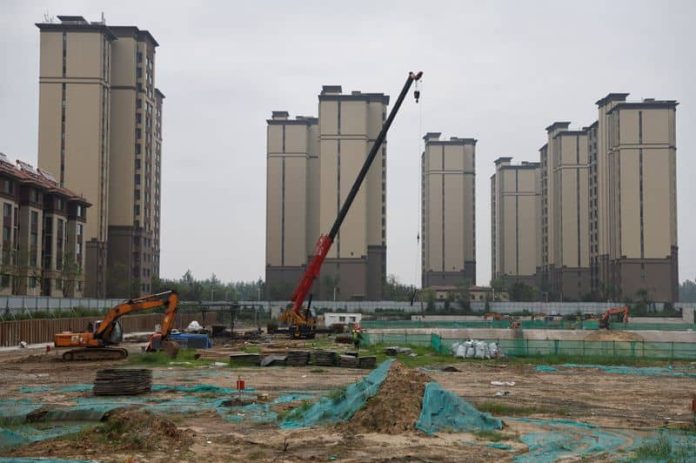By Xie Yu and Clare Jim
HONG KONG (Reuters) -Embattled Chinese property developer Country Garden faces a critical test of investor confidence on Thursday, as creditors prepare to vote on its proposal to delay payment for an onshore private bond.
The vote, which is expected to conclude by 10 p.m. (1400 GMT) Hong Kong time, will be a key hurdle Country Garden will have to overcome as it strives to avoid default amid a spiralling financing crisis.
China’s real estate market, which accounts for roughly a quarter of the economy, is grappling with a debt crisis that has rattled global markets and sparked fears of contagion at a time when the country is already struggling with a broader slowdown.
Country Garden has been talking with its onshore creditors to extend a 3.9 billion yuan ($535.4 million) private bond due on Saturday.
“In the onshore market, debt extension is a common practice, and many developers have reached an agreement with investors,” said Gary Ng, Asia Pacific senior economist at Natixis.
Ng cited an in-house analysis that found 0.4% of China’s corporate bonds were extended on a trailing 12-month basis, keeping the actual default rate low at 0.08% by the end of June.
“Country Garden may be able to extend its debts, but it does not mean the company and property sector are out of the woods unless home sales rebound.”
Creditors will also vote on other agendas newly added this week, including adding a 40-day grace period to the payment proposed by the company.
On Wednesday, Country Garden – China’s largest private developer – posted a staggering $6.7 billion in first-half losses and warned of default risks.
It said that if its performance continued to deteriorate, it might be unable to fulfill its financial covenants, which may result in default and cross-defaults of certain borrowings.
Country Garden’s total liabilities were about $194 billion by the end of June, unchanged from the end of 2022, based on its first-half financial results.
It faces 108.7 billion yuan ($14.91 billion) worth of debts due within 12 months, while its cash level falls short at around 101.1 billion yuan.
A default by Country Garden would exacerbate the country’s spiralling real estate crisis and could delay the prospect of a recovery of not only the property market, but the overall Chinese economy.
According to the extension plan, Country Garden will repay the onshore private bond in seven installments ending in September 2026. Three initial installments will be made this year, with 2% of the principal each. The coupon will be kept at the same rate at 5.65% and paid annually.
The voting will be held via private meetings and it is unclear how quickly the results will be made available to the bondholders afterwards.
The company might have more time to negotiate for the bond extension if onshore investors forego the longer grace period, some bondholders said.
As pressure mounts on the real estate market, two of China’s biggest cities eased mortgage curbs and Chinese authorities urged cities to broaden the definition of first-home mortgages in hopes of reviving consumer demand for property.
A report by Goldman Sachs said it sees “a high possibility” that more big cities will follow suit in easing mortgages. If the move was broadly implemented in large cities it “may provide a modest growth impulse to the property market”, although the magnitude was likely to be measured, it added.
China’s central bank on Thursday said it would unblock financing channels of stocks, bonds and loans for private enterprises and support their listing and refinancing, following a Wednesday meeting with companies and lenders.
Country Garden’s Hong Kong-listed shares were up around 1.1% by Thursday early afternoon, but have lost 67% so far this year.
($1 = 7.2838 Chinese yuan)
($1 = 7.2890 Chinese yuan renminbi)




















